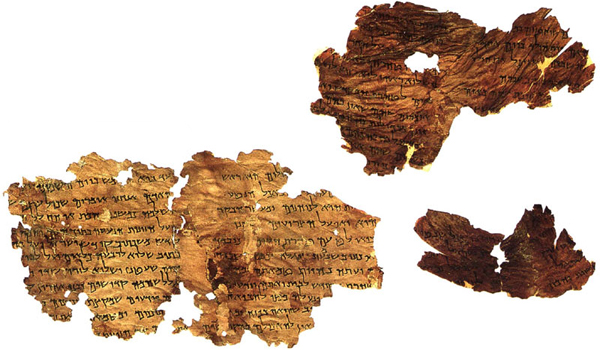Hey Buddy, Wanna Buy a Dead Sea Scroll?

Get the world’s most fascinating discoveries delivered straight to your inbox.
You are now subscribed
Your newsletter sign-up was successful
Want to add more newsletters?

Delivered Daily
Daily Newsletter
Sign up for the latest discoveries, groundbreaking research and fascinating breakthroughs that impact you and the wider world direct to your inbox.

Once a week
Life's Little Mysteries
Feed your curiosity with an exclusive mystery every week, solved with science and delivered direct to your inbox before it's seen anywhere else.

Once a week
How It Works
Sign up to our free science & technology newsletter for your weekly fix of fascinating articles, quick quizzes, amazing images, and more

Delivered daily
Space.com Newsletter
Breaking space news, the latest updates on rocket launches, skywatching events and more!

Once a month
Watch This Space
Sign up to our monthly entertainment newsletter to keep up with all our coverage of the latest sci-fi and space movies, tv shows, games and books.

Once a week
Night Sky This Week
Discover this week's must-see night sky events, moon phases, and stunning astrophotos. Sign up for our skywatching newsletter and explore the universe with us!
Join the club
Get full access to premium articles, exclusive features and a growing list of member rewards.
A family that holds pieces of the Dead Sea Scrolls is quietly offering pieces of the ancient documents for sale — a move that's causing a dustup among archaeologists and biblical historians.
First discovered in a cave near the Dead Sea in 1947, the animal-skin parchments are some of the oldest known versions of the Hebrew Bible, and are treasured as near-priceless documents, The Associated Press reports.
Institutions like Azusa Pacific University in California and Southwestern Baptist Theological Seminary in Texas have spent millions on fragments of the Dead Sea Scrolls.
More fragments — some as small as a postage stamp — are quietly being sold on the international antiquities market by William Kando, whose family has kept portions of the scrolls in a safe-deposit box in Switzerland.
The sale of pieces of the Dead Sea Scrolls has surprised many researchers, some of whom didn't even know there were portions still available. It has also outraged some Israeli government officials, who maintain the scrolls are cultural property of Israel.
"I told Kando many years ago, as far as I'm concerned, he can die with those scrolls," Amir Ganor, head of the Israeli antiquities anti-looting division, told the AP. "The scrolls' only address is the State of Israel."
Some experts believe more ancient documents may come to light from the many caves in the Dead Sea area. "I would not at all be surprised if more material were to be found," Lenny Wolfe, a Jerusalem manuscripts dealer, told the AP.
Get the world’s most fascinating discoveries delivered straight to your inbox.
Follow Marc Lallanilla on Twitter and Google+. Follow us @livescience, Facebook & Google+. Original article on LiveScience.com.

 Live Science Plus
Live Science Plus










